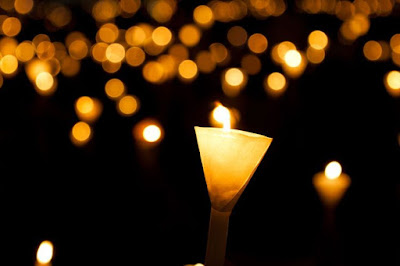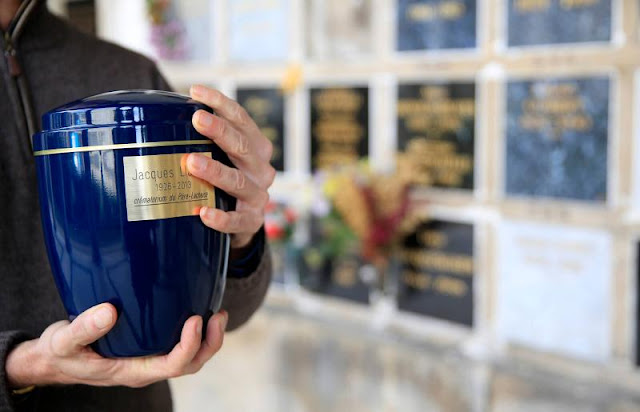How the Funeral Industry is Changing Right Now
Since
last year significant changes in the funeral industry have been noted, and many
experts are saying that we are entering a new era of death
services. As most of us know, COVID has contributed to creating a slew
of costs, which reduces revenue for the funeral industry across the country.
Overall,
the revenue potential of funeral industry has gone down considerably. The average cost, according to the NFDA, is
around 9000 dollars, minus the cemetery charges. However, if a family goes for
direct cremation services, the cost drops to $3,100. So, as families shift
from traditional burial methods to cremation, the revenue is decreasing for
traditional funeral planning. An interesting development is that independent
funeral homes are buying and installing cremation machines to boost their
businesses. According to a report, more than 20% of funeral homes have acquired and are operating their crematories
in the USA, and around 10 percent have plans to tap into the cremation
industry.
For
small funeral homes, it is tough to invest in cremation equipment, as they do
not have the funds to switch from one business model to another. Moreover, this
equipment iscostly for them.
1. Cremation Industry Boom
Cremation rate has
continued to climb in the pandemic times, and cemeteries are challenged to keep
up with the popularity of cremations. Most traditional families still opt for
orthodox burials, but people who are environment conscious, and want to save
money, are choosing cremation over burial. For instance, cremation niches,
interring ashes, or scattering ashes cost way less than traditional burials.
About 200 to 300 dollars are spent on burial of ashes or scattering permits.
Sometimes cemeteries charge $500 minimum to inter cremains, Because it is
affordable, flexible and environment friendly, cremation is gaining more
traction over traditional burial trends.
2. Changes Because of COVID
Walker Posey of Posey Funeral Directors recently
explained to CNBC that although the general public may think funeral directors
must be “banking” from the COVID-related death surge, the opposite is true. He
explained in his video interview that costs associated with maintaining a
funeral home had increased significantly during times of COVID. While this is
no surprise to you if you work in a funeral home, it’s worth noting that this
change is likely the source of many significant changes we will continue to see
in the profession. Throughout COVID, funeral directors have become more engaged
throughout the entire process of funeral planning.
Before COVID, funeral directors were more involved
in the logistics of the funeral
service and less with the planning. Fast forward to now, where you, the
funeral professionals all around the country, have stepped up to assist in the
difficult task of planning a loved one’s service during a pandemic. With more
details and planning necessary, this support has become critical, and we are
grateful you have stepped up to offer that.
The value of communal grieving in service has
become more valuable than ever.
As much as we’re over talking about COVID, just
like you, this one is worth mentioning. Remember the saying, “Absence makes the
heart grow fonder?”. Well, in this case, not having community support during a
loss makes the heart value it even more. We predict that their perceived value
will continue to rise as it becomes more viable to have funeral service
gatherings.
To explain this, Sobonfu Somé, an expert on
spirituality, told Worth publication: “Communal grieving offers something that
we cannot get when we grieve by ourselves. Through acknowledgment, validation,
and witnessing, communal grieving allows us to experience a level of healing
that is deeply and profoundly freeing.”
3. Millennials’ Attention
Big Tech is beginning to jump on board and
innovate the funeral industry. According to Crunchbase shared through CNBC,
“over the past three years, venture and seed backers have put capital into at
least 26 companies offering products and services around death and
bereavement”. Ready or not… Here comes [more] disruption and change! With an
increasing number of eyes peeking into the opportunities that lie ahead for the
funeral profession, Millenials feel more and more drawn to this industry to
disrupt it.
Millennials see the opportunities too… and are
here to pave a new way. “Millennials are used to examining old industries and
figuring out if they’re still serving the public today,” said Caitlin Doughty
to NBC News in a recent interview. According to Doughty, “No industry is less
serving to the public than the funeral industry.” While her words might read a
bit harsh, we can at least acknowledge that the business model of many funeral
homes relies on services, and products are rapidly losing their perceived
value, especially if they have anything to do with burial, which has plummeted
down to 37.5% percent in the last few years.
A wide range of new services and professional
roles are being born in the death industry.
With a new set of eyes on the changing landscape
of funerals comes a new set of products, services, and even professional roles.
4. From Green Burials to Living Funerals
Tradtions are shifting with the times. These new
services and roles focus less on tradition and more on unique meaning. Adelle
Archer, an industry thought leader and the CEO of Eterneva, explains: “I think
it’s about optionality. We’re breaking with tradition. We’re starting to say,
‘What’s personal and meaningful for me and my loved one, and what feels right?’
rather than ‘What have we always done?’.” She, among many others, has
recognized that families only really feel connected to a service if there is
unique meaning to it, which is why she meets her customers with that through
her exceptional cremation diamonds.
5. The Demographic of Funeral Professionals is
Changing.
The changes in the demographic of funeral
professionals must be noted as well. According to the National Funeral
Directors Association, around 70 percent of students in the mortuary science
departments are female. On top of that, it is noted that 85 percent of mortuary
schools are students who have had no prior connection to the funeral industry,
which demonstrates an increase in interest in this industry.
That means that gone are the days where the
funeral business is predominantly a family duty, passed on from generation to
generation. Coming are the days where folks from all different walks of life
and backgrounds are ready to meet the changing needs of today’s funeral
consumers.
If you are searching for cremation nearby, feel
free to contact us. We will guide you through the process of planning and
executing cremation.




Comments
Post a Comment